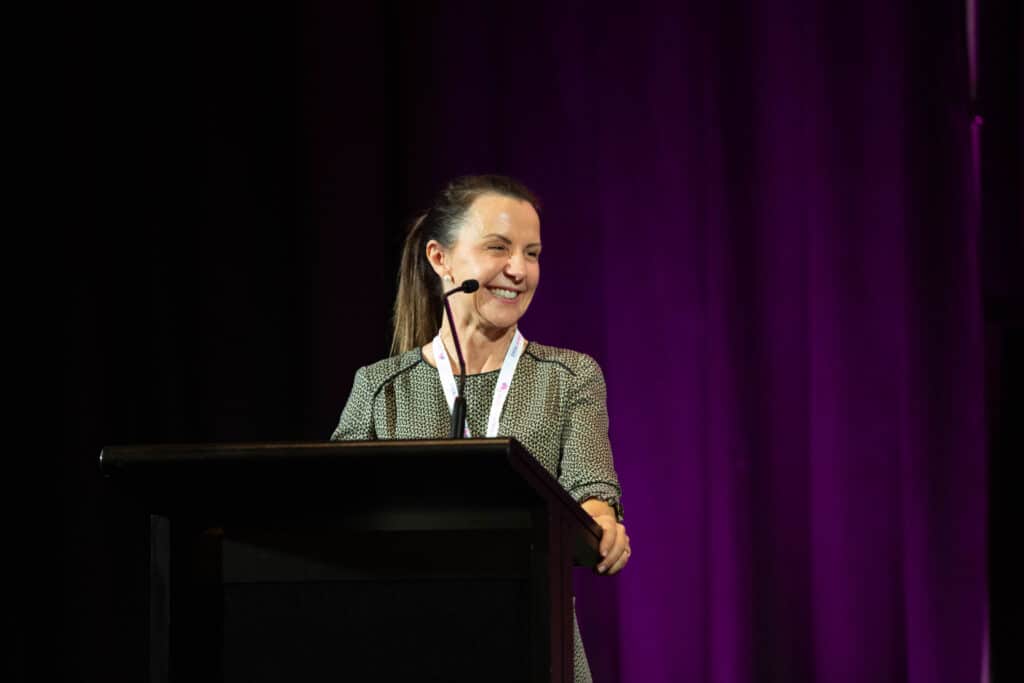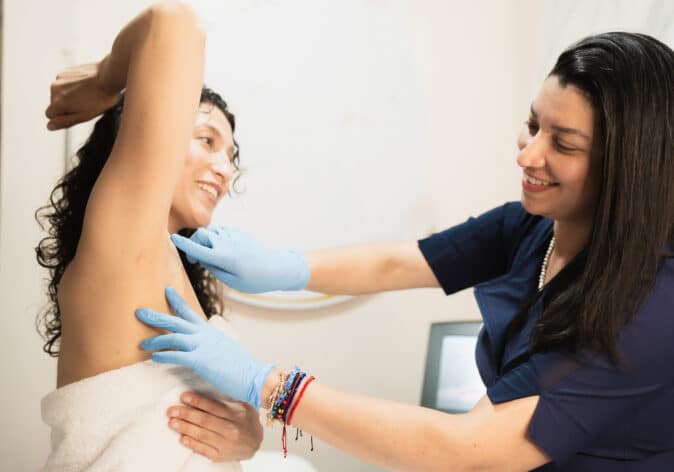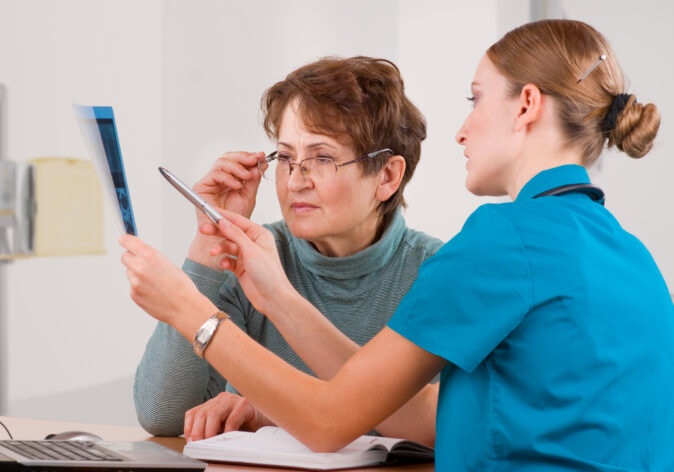In the treatment of breast cancer it is important to recognize the quality of life needs of each patient. This is where consumer-led research comes in, which focuses on patient needs from a patient’s perspective.
Ms Karen Alexander has been a member of the Breast Cancer Trials Consumer Advisory panel since 2017. She was diagnosed with triple negative breast cancer in 2011 and carries a BRCA1 gene mutation. We spoke with Karen about the importance of consumer led research.
“It really is identifying the best way to investigate those issues that are important to people. Really trying to identify how we engage with people. How we can get people to contribute in a meaningful way and really ensure that people understand that they do have a voice and that we will all be happy to work together to try and get those great patient outcomes.”
“One of the things that we really found in looking at this, is that there’s not a lot in terms of the definitions of what research is and how that differs from consumer-driven research. Consumer-driven research is more thinking about what a consumer needs, but that’s driven by either academic researchers or industry.”
“Whereas consumer-led research is more about what a patient’s needs are, and that can be from the perspective of the patient themselves, or perhaps, a carer, a family member, or a patient representative organization. So that’s really thinking about things that are probably more aligned to quality of life rather than the standard of care treatment.”
Listen to the Podcast
Ms Karen Alexander has been a member of the Breast Cancer Trials Consumer Advisory panel since 2017. She was diagnosed with triple negative breast cancer in 2011 and carries a BRCA1 gene mutation. We spoke with Karen about the importance of consumer led research.
What is this project focussing on?
“So, we all recognize that the treatment is the most critical thing, but there’s been so many great advances in the treatment. Now we have an opportunity that we can turn our minds to, well, what can we do to make the patient’s quality of life a bit better? So, the project that we’ll be doing is really focusing on quality of life, but we’ll be going out to patient organisations and looking at ways that we can reach out to patients themselves to find out what their burning issues are.”
“Some of the things that we’ve considered and discussed are things like scalp cooling treatments. Now, some patients lose their hair, and some don’t. But for some people, losing their hair is not a big deal. With my own cancer diagnosis, it was originally thought that it’ll be fine, we’ll take out the tumour and then you’ll need some radiation, and you’ll be good to go.”
“Then it was identified that I would need chemotherapy, so they said to me that I would lose my hair. So even through the whole process, through the identification, the diagnosis, the initial surgery, when they told me that I was going to lose my hair, that was the first time I cried.”
“It’s just such a visible side effect and from my perspective, if you can get up and get dressed and put your makeup on and you look ‘normal’, you can kind of trick yourself into thinking that everything is normal. But when you’ve got no hair, it’s hard to trick yourself into thinking that everything’s normal.”
“So, scalp cooling treatments are a good example of some of the advances that people have been able to achieve, that makes a big difference to a patient’s quality of life.”
“We’ll be looking at the areas that people think are important and then we’ll choose a project topic, and we hope to get that done in this current quarter. So, by the end of September, hopefully we will have identified our project and we’ll be able to go from there.”
What is consumer-led research and why is there a need for it in the breast cancer space?
“So, consumer-led research is just coming back to issues and concerns that are important to patients. And in the breast cancer setting, it comes back to the fact that over the last 10 years, we’ve made such incredible advances in the treatment perspective. People are living longer; they’ve got much better outcomes. And so now that people are living longer, it’s those quality-of-life issues that are more at the forefront of people’s minds.”
“That can be things like I was saying before about losing your hair, but sometimes it’s other things like some of the menopausal effects, or there’s just a range of other physical effects that can occur as a result of your breast cancer treatment that we generally live with, and we want to start asking the question of what are ways that we can better manage those for people?”
What are your hopes for the future of breast cancer research?
“Oh gosh the research is amazing, I mean, I had my breast cancer diagnosis in 2011, and even now the differences in the treatments are incredible, and the neoadjuvant treatment that occurs prior to surgery is just amazing.”
“So, I think if we can just continue on this amazing trajectory with that wonderful research that’s occurring, it’s certainly a great outlook for all of us.”



